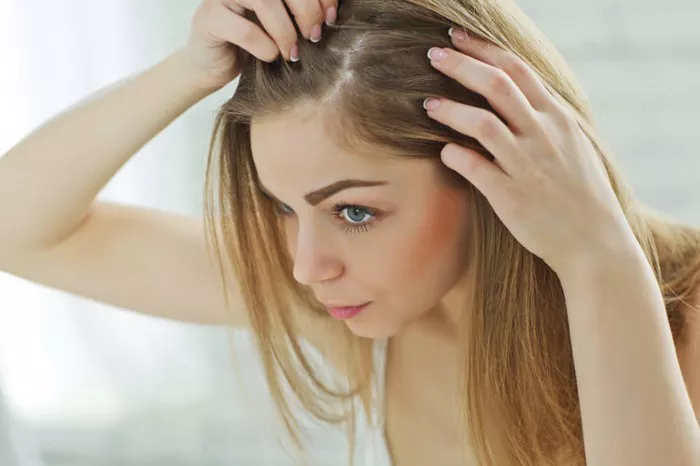Hair loss, a concern that transcends gender and age, often prompts individuals to explore various solutions to restore their locks. Hormone Replacement Therapy (HRT) emerges as a potential option, particularly for those experiencing hair loss linked to hormonal imbalances. In this comprehensive article, we delve into the question: Will Hormone Replacement Therapy help my hair grow back?
Understanding Hormone Replacement Therapy (HRT): A Primer
Before exploring the impact of HRT on hair growth, it’s essential to comprehend the basics of Hormone Replacement Therapy. HRT involves the administration of hormones, such as estrogen and progesterone for women or testosterone for men, to address hormonal imbalances. This therapeutic approach aims to alleviate symptoms associated with hormonal fluctuations, including those related to hair loss.
The Mechanism: How HRT Influences Hair Growth
To assess the potential of HRT in promoting hair growth, it’s crucial to understand the intricate relationship between hormones and hair follicles. Hormones play a pivotal role in hair growth cycles, and imbalances can disrupt this delicate process. Here’s a breakdown of the mechanisms involved:
1. Estrogen and Hair Growth in Women
Pros: Estrogen, a key female hormone, is known to promote hair growth and maintain the hair in the anagen (growth) phase for a more extended period. HRT, which often includes estrogen supplementation, can potentially counteract the effects of hormonal imbalances leading to hair loss in women.
Cons: Excessive estrogen levels, on the other hand, may lead to side effects and need to be carefully monitored. The balance of hormones is crucial, and individual responses may vary.
2. Testosterone and Hair Growth in Men
Pros: For men experiencing androgenetic alopecia (male-pattern baldness), a common cause of hair loss, HRT with testosterone may help slow down or reverse the process. Testosterone replacement therapy aims to address hormonal deficiencies and, in turn, positively impact hair growth.
Cons: The potential side effects of testosterone replacement therapy, including increased risk of cardiovascular issues and prostate problems, underscore the need for careful consideration and medical supervision.
3. Combined HRT for Transgender Individuals
Pros: Transgender individuals undergoing hormone therapy may experience changes in hair growth patterns, aligning more with their affirmed gender. The redistribution of body hair and potential scalp hair improvements can positively impact individuals’ self-esteem.
Cons: Hormone therapy carries potential risks and side effects, and the decision to undergo HRT should be made in consultation with healthcare professionals.
Clinical Evidence: What the Studies Say
To substantiate the potential impact of HRT on hair growth, we turn to clinical studies and scientific research:
Prospective studies: Some studies suggest that HRT, particularly in postmenopausal women, may have a positive effect on hair density and thickness. The hormonal balance achieved through HRT can contribute to an improvement in hair health.
Varied outcomes: However, the outcomes of HRT on hair growth are diverse, with individual responses influenced by genetic factors, age, and the specific hormone combination used in therapy.
Considerations and Expert Opinions
To offer a more nuanced perspective, we consult with experts in the field of endocrinology and dermatology:
Experts emphasize the importance of a thorough evaluation before initiating HRT for hair loss. Understanding the underlying cause of hormonal imbalances is crucial for tailoring the therapy to individual needs.
The potential side effects and risks associated with HRT underscore the need for close monitoring by healthcare professionals. Regular check-ups and adjustments to hormone levels may be necessary to mitigate adverse effects.
It’s crucial to manage expectations. While HRT may have positive effects on hair growth, results may vary, and complete restoration may not be achievable in all cases.
Conclusion:
The question of whether Hormone Replacement Therapy will help hair grow back is complex and multifaceted. The potential benefits of HRT on hair growth, backed by scientific studies, suggest a promising avenue for those seeking solutions to hormone-related hair loss.
However, the decision to undergo HRT should be approached with careful consideration and consultation with healthcare professionals. The individualized nature of hormone therapy requires a tailored approach, considering factors such as age, gender, overall health, and specific hormonal imbalances.
In conclusion, while Hormone Replacement Therapy holds promise in addressing hair loss related to hormonal imbalances, it is not a one-size-fits-all solution. Thorough medical assessment, ongoing monitoring, and realistic expectations are essential components of the HRT journey. As with any medical intervention, informed decision-making and professional guidance pave the way for a more successful and satisfying experience on the path to hair restoration.
Does Hair Transplant Stop Future Hair Loss

